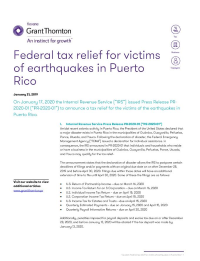-
Financial statements audits
Financial statement audits
-
Compliance audits
Compliance audits
-
Compilations and reviews
Compilations and audit
-
Agreed-upon procedures
Agreed-upon procedures
-
Corporate and business tax
Our trusted teams can prepare corporate tax files and ruling requests, support you with deferrals, accounting procedures and legitimate tax benefits.
-
International tax
Our teams have in-depth knowledge of the relationship between domestic and international tax laws.
-
Tax compliance
Business Tax
-
Individual taxes
Individual taxes
-
Estate and succession planning
Estate and succession planning
-
Global mobility services
Through our global organisation of member firms, we support both companies and individuals, providing insightful solutions to minimise the tax burden for both parties.
-
Sales and use tax and indirect taxes
SUT/ VAT & indirect taxes
-
Tax incentives program
Tax incentives program
-
Transfer Pricing Study
The laws surrounding transfer pricing are becoming ever more complex, as tax affairs of multinational companies are facing scrutiny from media, regulators and the public

-
Business consulting
Our business consulting services can help you improve your operational performance and productivity, adding value throughout your growth life cycle.
-
Forensic and investigative services
At Grant Thornton, we have a wealth of knowledge in forensic services and can support you with issues such as dispute resolution, fraud and insurance claims.
-
Fraud and investigations
The commercial landscape is changing fast. An ever more regulated environment means organizations today must adopt stringent governance and compliance processes. As business has become global, organizations need to adapt to deal with multi-jurisdictional investigations, litigation, and dispute resolution, address the threat of cyber-attack and at the same time protect the organization’s value.
-
Dispute resolutions
Our independent experts are experienced in advising on civil and criminal matters involving contract breaches, partnership disputes, auditor negligence, shareholder disputes and company valuations, disputes for corporates, the public sector and individuals. We act in all forms of dispute resolution, including litigation, arbitration, and mediation.
-
Business risk services
We can help you identify, understand and manage potential risks to safeguard your business and comply with regulatory requirements.
-
Internal audit
We work with our clients to assess their corporate level risk, identify areas of greatest risk and develop appropriate work plans and audit programs to mitigate these risks.
-
Service organization reports
As a service organization, you know how important it is to produce a report for your customers and their auditors that instills confidence and enhances their trust in your services. Grant Thornton Advisory professionals can help you determine which report(s) will satisfy your customers’ needs and provide relevant information to your customers and customers’ auditors that will be a business benefit to you.
-
Transactional advisory services
Transactions are significant events in the life of a business – a successful deal that can have a lasting impact on the future shape of the organizations involved. Because the stakes are high for both buyers and sellers, experience, determination and pragmatism are required to bring deals safely through to conclusion.
-
Mergers and acquisitions
Globalization and company growth ambitions are driving an increase in M&A activity worldwide as businesses look to establish a footprint in countries beyond their own. Even within their own regions, many businesses feel the pressure to acquire in order to establish a strategic presence in new markets, such as those being created by rapid technological innovation.
-
Valuations
We can support you throughout the transaction process – helping achieve the best possible outcome at the point of the transaction and in the longer term.
-
Recovery and reorganization
We provide a wide range of services to recovery and reorganisation professionals, companies and their stakeholders.
On January 17, 2020 the Internal Revenue Service (“IRS”) issued Press Release PR-2020-01 to announce a tax relief for the victims of the earthquakes in Puerto Rico.
I. Internal Revenue Service Press Release PR-2020-01 (“PR-2020-01”)
Amidst recent seismic activity in Puerto Rico, the President of the United States declared that a major disaster exists in Puerto Rico in the municipalities of Guánica, Guayanilla, Peñuelas, Ponce, Utuado, and Yauco. Following the declaration of disaster, the Federal Emergency Management Agency (“FEMA”) issued a declaration for individual assistance. In consequence, the IRS announced in PR-2020-01 that individuals and households who reside or have a business in the municipalities of Guánica, Guayanilla, Peñuelas, Ponce, Utuado, and Yauco may qualify for the tax relief.
The announcement states that the declaration of disaster allows the IRS to postpone certain deadlines of filings and/or payments with an original due date on or after December 28, 2019 and before April 30, 2020. Filings due within those dates will have an additional extension of time to file until April 30, 2020. Some of these the filings are as follows:
- U.S. Return of Partnership Income – due on March 16, 2020
- U.S. Income Tax Return for an S Corporation – due on March 16, 2020
- U.S. Individual Income Tax Return – due on April 15, 2020
- U.S. Corporation Income Tax Return – due on April 15, 2020
- U.S. Income Tax for Estates and Trusts – due on April 15, 2020
- Quarterly Estimated Payments – due on January 15, 2020 and April 15, 2020
- Quarterly Payroll Informative Returns – due on April 30, 2020
Additionally penalties imposed for payroll deposits and excise tax due on or after December 28, 2020, and before January 13, 2020, will be abated if the tax deposit was made by January 13, 2020.
To such effect, the new due dates for the following tax returns and/or payment of taxes are as follows:
The IRS does not include on the postponement period the following informative returns and/or forms:
- W-2, 1094, 1095, 1097, 1098, or 1099 series
- Forms 1042-S, 3921, 3921, 3922 or 8027.
- Employment or excise tax deposits
Taxpayers who receive notices of penalty from the IRS for late filing or late payment corresponding to the postponement period must contact the IRS to request the abatement of the penalty.
Taxpayers affected by the disaster that reside or have a business outside the covered disaster area can contact the IRS to request the tax relief.
Affected Taxpayers
Pursuant to Treasury Regulations §301.7508A(d)(1), affected taxpayers eligible for the postponement of time to file returns, pay taxes and perform other time sensitive acts include:
- individuals who live, and business whose principal place of business is located in the covered disaster area;
- taxpayers that are not in the covered disaster area, but whose records necessary to meet the deadline are located in the covered disaster area;
- workers associated with a governmental or philanthropic organization assisting in the relief activities in the covered disaster area; and
- any individual visiting the covered disaster area who was killed or injured as a result of the disaster.
Casualty Losses
As detailed on Publication 547, affected taxpayers in a disaster area declared by the federal government can claim disaster related casualty losses on their federal income tax for the year in which the event occurred or the year prior to the event. The heading Disaster Designation “Puerto Rico, Earthquakes” and the disaster declaration number, FEMA 4473 must be included on either the 2018 or 2019 return to expedite the refund process. As for individuals, the deduction for personal property losses may be for losses that are not covered by an insurance or any other reimbursements.
Other Relief
Affected taxpayers that request copies of previously filed tax returns can do so using Form 4506 or Form 4506-T. The IRS will waive the fees of the request and expedite the process. Taxpayers must indicate the Disaster Designation “Puerto Rico, Earthquakes” in red ink at the top of the corresponding form.
II. Opportunity Zones Final Regulations – Major Disaster Provisions
On December 19, 2019 the U.S. Treasury Department and the IRS issued the much-awaited final regulations implementing the Opportunity Zones tax incentive set forth under Section 1400Z-2 of the US Code. In this alert we will discuss the two provisions related to the major disaster declaration in Puerto Rico, which may impact the rules applicable to projects located in the municipalities of Guánica, Guayanilla, Peñuelas, Ponce, Utuado, and Yauco.
Working capital safe harbor
Qualified Opportunity Funds (“QOFs”) and Qualified Opportunity Zone Businesses (“QOZBs”) are limited in the amount of cash and cash equivalents that both may hold. At the QOZB level, however, a “reasonable” working capital may be held if the following requirements are satisfied:
- the amount is designated in writing for the acquisition, construction and/or substantial improvement of tangible property within the opportunity zone;
- the QOZB adopts a written schedule that provides for the expenditure of the amount within 31 months of the QOZB’s receipt thereof and is consistent with the ordinary start-up of a trade or business; and
- the working capital assets are used in a manner that is “substantially consistent” with the previous two requirements.
The final regulations provide that, if a project that otherwise meets the requirements of the 31-month working capital safe harbor is located within an opportunity zone designated as a part of a Federally declared disaster area, the QOZB may receive up to an additional 24 months to consume its working capital assets, provided the project is delayed due to that disaster. This may expand the total period to deploy capital by a QOZB affected by the recent earthquakes in the municipalities of Guánica, Guayanilla, Peñuelas, Ponce, Utuado, and Yauco from two and a half years to four and a half years (55 months). If a QOZB intends to avail itself of this extension, it is recommended that it documents effectively the delays caused by the earthquakes, amends the written plan, and execute the schedule and usage of the capital in a manner consistent with the amended plan.
Time Period for a QOF to Reinvest Proceeds
Section 1400Z-2(e)(4)(B) provides that the Secretary of Treasury shall prescribe regulations to ensure that a QOF has a reasonable period of time to reinvest the return of capital from investments in qualified opportunity zone property (“QOZP”) and to reinvest proceeds received from sale or disposition of QOZP. In the proposed regulations, the QOF was allowed a period of 12 months to reinvest proceeds received from the return of capital or the sale or disposition of some or all of its QOZP. If the investment was made during said period beginning on date of the distribution, sale, or disposition, then the proceeds were treated as QOZP in evaluating whether the QOF satisfied the 90% investment standard to the extent the proceeds were continuously held in cash, cash equivalents or debt instruments with a term of 18-months or less. The proposed regulations also provided that the 12-month reinvestment period is tolled while waiting on government action if the QOF has completed the application for action and is awaiting a government response.
The final regulations provide that a QOF may receive up to an additional 12 months to reinvest such proceeds if additional delays are caused by a Federally declared natural disaster. The QOF must invest proceeds as originally planned before the disaster. For example, if a QOF is unable to invest in a certain QOZB property because the property is in a Federally declared disaster area, the QOF must invest the proceeds in similar property located in that opportunity zone. Therefore, affected QOFs will have a period of up to 24 months to make such reinvestment as originally planned provided the delay is caused by the earthquakes in the affected municipalities.

